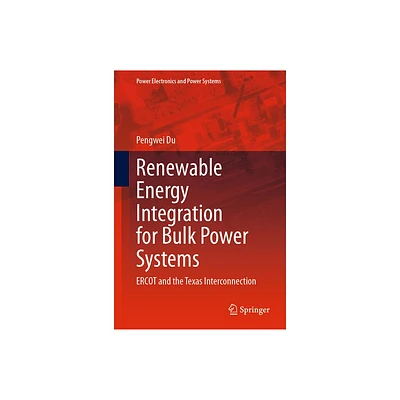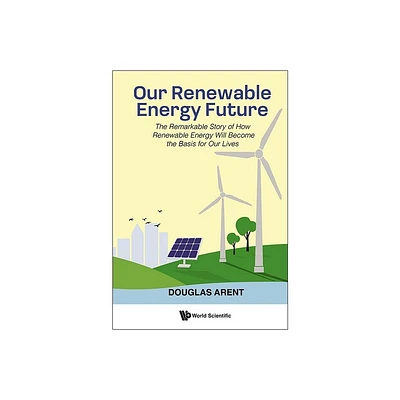Home
Renewable Energy Grid Integration: Technical Performance and Requirements
Loading Inventory...
Barnes and Noble
Renewable Energy Grid Integration: Technical Performance and Requirements
Current price: $89.00


Barnes and Noble
Renewable Energy Grid Integration: Technical Performance and Requirements
Current price: $89.00
Loading Inventory...
Size: OS
*Product Information may vary - to confirm product availability, pricing, and additional information please contact Barnes and Noble
Now is the time to plan for the integration of significant quantities of distributed renewable energy into the electricity grid. Concerns about climate change, the adoption of state-level renewable portfolio standards and incentives, and accelerated cost reductions are driving steep growth in U.S. renewable energy technologies. The number of distributed solar photovoltaic (PV) installations, in particular, is growing rapidly. As distributed PV and other renewable energy technologies mature, they can provide a significant share of our nation's electricity demand. However, as their market share grows, concerns about potential impacts on the stability and operation of the electricity grid may create barriers to their future expansion.
This book describes the Renewable Systems Interconnection (RSI) that the U.S. Department of Energy launched in 2007 to facilitate more extensive adoption of renewable distributed electric generation. The technical and analytical challenges that must be addressed to enable high penetration levels of distributed renewable energy technologies are also addressed in this book. Because integration-related issues at the distribution system are likely to emerge first for PV technology, the RSI study focuses on this area. This is an edited, excerpted and augmented edition of various government publications.978-1-61122-194-7 Fuel efficiency is a form of thermal efficiency, meaning the efficiency of a process that converts chemical potential energy contained in a carrier fuel into kinetic energy or work. Overall fuel efficiency may vary per device, which in turn may vary per application, and this spectrum of variance is often illustrated as a continuous energy profile. This book presents current research data from across the globe in the study of fuel efficiency, including the study of a new CO2 capturing PGS that has a high-efficient NPGE by utilizing waste heat from factories; government intervention to promote the development of increasingly resource productive and efficient systems of energy production and consumption in Japan; as well as improving fuel efficiency of compression ignition engines fueled with vegetable oil.


















